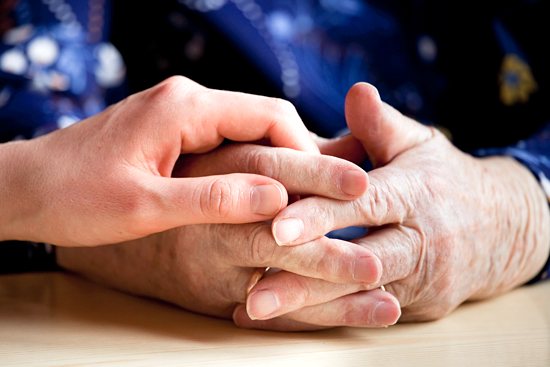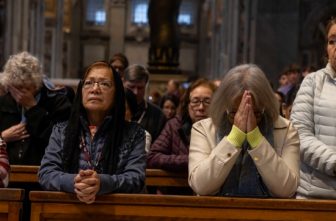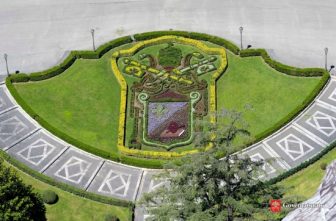 As Barbara Redpath was caring for her husband Peter while he suffered from Alzheimer’s disease, God, her family and friends were there for her.
As Barbara Redpath was caring for her husband Peter while he suffered from Alzheimer’s disease, God, her family and friends were there for her.
“I couldn’t have taken the journey with Peter without my faith,” said the Nativity of Our Lord in St. Paul parishioner, whose husband passed away 19 months ago.
“As a caregiver, it’s very hard to ask for help, but we were blessed that the family and these friends didn’t wait for me to ask,” she added.
Not all sufferers of Alzheimer’s and related dementias and their caregivers have loved ones who understand and actively support them, which is one reason Redpath hopes to use her knowledge and experience to help others at her parish or wherever there is a need.
She is involved in a St. Paul collaboration that earlier this year identified, through a survey, priorities for preparing the community for the budgetary, social and personal impacts of dementia, of which Alzheimer’s is the most common type.
It’s now beginning to address several of those priorities: raising awareness and providing information and education about the disease, which affects one in nine people over age 65.
The St. Paul team — which involves five neighborhoods and representatives of government, health care and community groups — is known as Saint Paul Neighborhoods (SPN) and is linked to a statewide program enacted by the Legislature called ACT on Alzheimer’s.
The need for awareness is great, said Georgia Lane, coordinator for SPN ACT on Alzheimer’s and Dementia Pathways program director at Carondelet Village Care Center in St. Paul.
Carondelet Village, which offers a full spectrum of housing options, memory care and community outreach to seniors, convened the SPN involvement in ACT on Alzheimer’s in February, she said.
“The general community is not aware that this is one of the leading public health crises that we’re going to be facing,” she said. “People just don’t even know the prevalence and the impact that this is going to have.”
As one of its action items, this month SPN will begin compiling a packet of information and local resources related to dementia for distribution by SPN team members and community organizations, Lane said.
The awareness packet first will say what dementia is, identifying the signs and symptoms, for those with questions or who know someone with dementia.
In the packet, the team also will make available materials that are appropriate for those of different cultures, including different languages. An initial focus will be on the African-American community, which has twice the rate of dementia as the overall community, Lane said.
SPN’s second goal is to prepare community organizations to train Dementia Friends: individuals who become aware of the disease and are sympathetic to its sufferers. The program will be modeled after one in England in which family, friends and community members attend an hour-long training session to increase their understanding of dementia, she said.
“It could be as simple as I see someone in the grocery store who looks confused or lost. I could go up to them and ask them if they need help,” Lane said.
Churches involved
Along with developing the materials and training program, SPN is working to identify which organizations should receive and distribute them, including faith communities, cultural communities, different leadership groups, schools, businesses, libraries and city employees.
Faith communities will continue to be an important part of the process, said Lane, citing awareness efforts by the local Jewish community. “Faith communities are where people go,” she said. “They feel safe there, and I think that’s a place where they might go if they have some questions.”
Besides awareness and education, other priority areas identified in SPN’s 127 surveys of community organizations involve long-term support services addressed in future wellness programs, home care and medical management of the disease.
One of nine communities in the state participating in ACT on Alzheimer’s, SPN has applied for a grant from the Blue Cross Blue Shield Foundation, she said.
Hopefully, the project will provide information and start a conversation about available resources and what should be done with the information, Lane said.
“My hope is that once we start offering information and education and the Dementia Friends training, the word will catch on because I think people are hungry for it,” she said. “People are in need of information and education because so many people are touched by it.”




